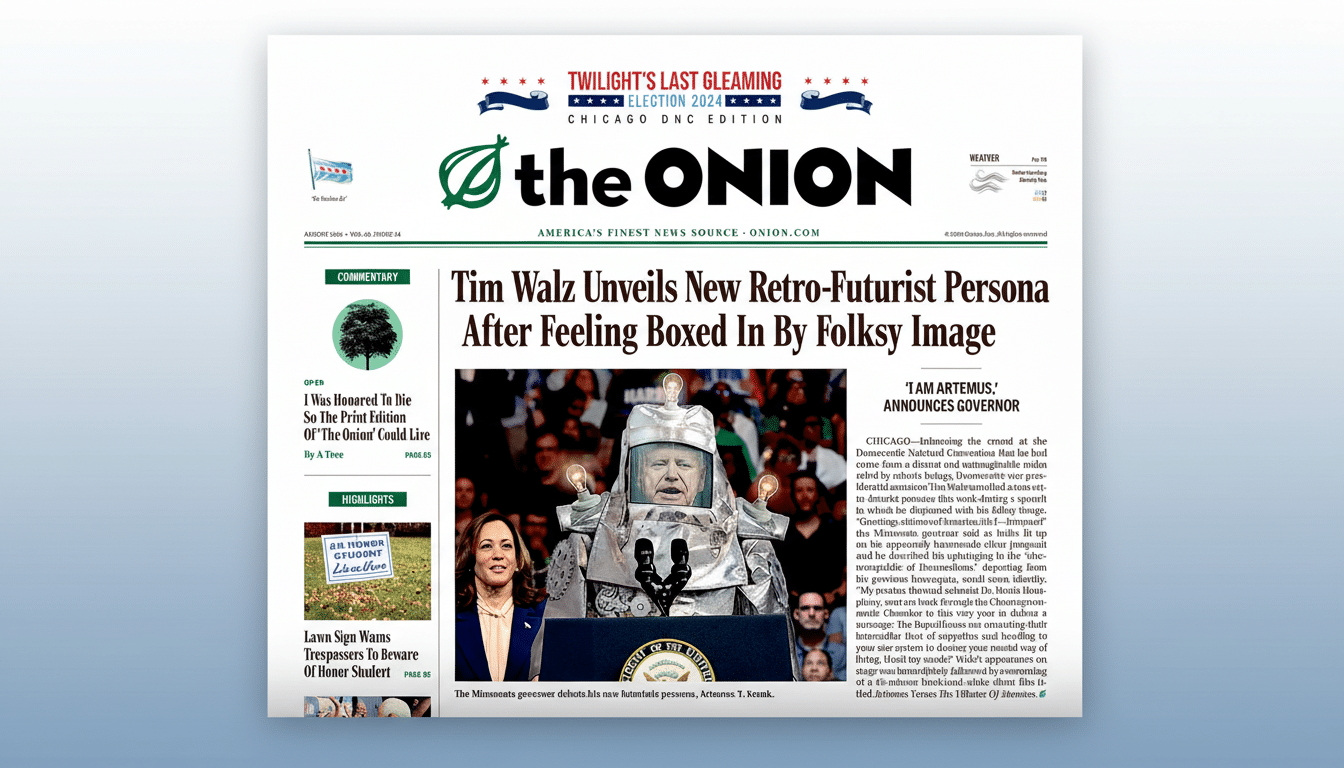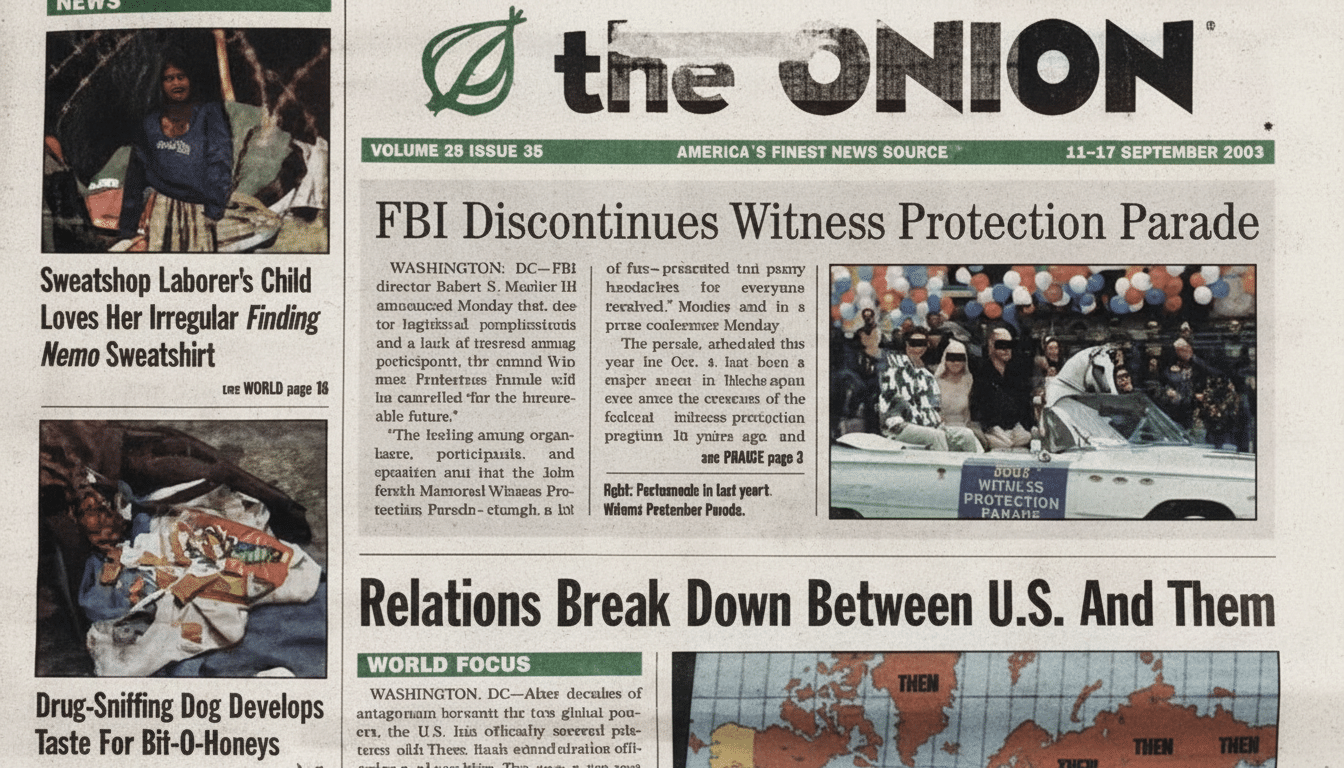The legendary satirist who leads the storied satire outlet says artificial intelligence can replicate his style but not deliver a punch line — and he’s not backing down on a plan to buy Infowars, either.
At a frank discussion at a premiere summit of journalists, CEO Ben Collins DUMPED on AI’s joke-writing ability and reaffirmed that his organization at some point still plans to close its court-halted takeover of Alex Jones’s conspiracy outlet.

AI Can’t Tell a Joke
Collins’s criticism is straightforward: large language models homogenize the internet and comedy values extremity. This is largely because machine systems trained to predict the “most likely next word” are structurally biased toward safe, median phrasing, whereas good jokes tend to be about risk, surprise and cultural specificity. “The middle of the distribution is where laughter goes to die,” he joked, encapsulating the chasm between machine ability and comedic timing.
Computational linguistics researchers have long described humor as a high bar for AI because it’s rooted in knowledge of the world, intonation and shared norms; the Association for Computational Linguistics has held multiple workshops underscoring that models tend to gripe with ambiguity and taboo. It squares with what writers see working in practice: AI can mimic a headline cadence or sitcom rhythm, but its risk-averse defaults and dearth of life give you what one comedy editor described as “polite chuckles, never spit-takes.”
Collins emphasized that the publication’s satire is entirely human-made and that management is “fervently” against outsourcing humor to generative systems. That position echoes wider guardrails in the creative industry — like those maintained by the Writers Guild of America limiting studios’ use of A.I. to write or rewrite scripts — meant to keep human authorship at the heart of work that relies on voice and originality.
A Deliberate Print Revival
Collins followed his own circuitous route to the corner office. And with a few years of reporting on online misinformation under his belt, he helped broker a buyout of the satire brand with backing from tech entrepreneur Jeff Lawson. VicakersCovid could be “a careerist pandemic and platform,” Ms. Cazambon said.Americans once lobbed this question at East High three decades ago, and don’t you know I’ve received multiple conspiracy theories on my voicemail since all of this started.“It’s exciting to see how one community steps up to really emphasize the importance of art designed by the people,” Overholtzer says.So-called convening power in journalism has a checkered history.After taking charge, the team ripped out “programmatic ad slop,” as Collins dismissed it, and relaunched a paid print edition.
That bet on tactility is paying off, at least according to the CEO: almost 56,000 paying print subscribers and a wink of an assertion that the paper is now one of the country’s largest by circulation. The calculus is part product, part brand: To give fans something delightful in the mailbox; to create a collectible; and to anchor revenue from among an audience that prizes human-crafted satire more than algorithmic filler.

Infowars Deal: Painful, But I’m Still Alive
On the most controversial front, Collins confirmed that the publication is still pursuing Infowars. A group led by the satire outlet was the winning bidder in an auction to acquire the site as part of a move to meet over a billion dollars in defamation judgments owed to families of victims of the Sandy Hook school shooting. A pause by a federal bankruptcy court and a thicket of motions slowed the handover, but subsequent orders have put Infowars in receivership with an order to sell, which should help clear the way.
Why purchase the flagship of conspiratorial media? Collins said the idea is to turn the property itself into a meta-satire of its own ecosystem — showcasing and sending up the supplement pitches and survivalist kits that paid for the brand’s fame. He didn’t sugarcoat the grind, describing the process as “a gigantic pain” and warning people away from even trying to buy “a psychopath’s website,” but he insisted that his endgame would remain the same.
Satire, Speech and the Age of Artificial Intelligence
Collins also cautioned that power players can jump rhetorically on misattributed violence and online rumor to legitimize crackdowns: His newsroom, Collins vowed, will continue exercising “jester’s privilege,” the centuries-old idea that satire is allowed to tell truths in uncomfortable ways. It’s a well-worn argument at a moment when platform rules, political pressure and court battles regularly collide with press freedoms.
Zooming out, his A.I. skepticism bucks a stampede in the industry. The Reuters Institute has found that many publishers are working with generative tools behind the scenes, but audience trust is brittle. Pew Research Center has found Americans more concerned than hopeful about AI’s impact, especially in news climes. Media executives spot efficiency; creators worry about displacement; consumers sniff out sameness. Satire, by its nature, deals in surprise — the one thing machines have proved notoriously bad at generating.
The Business Case for Shtick
Collins’s appeal is not only romantic; it’s tactical. If AI spam feeds with mediocre material, then scarcity moves to what is unavoidably human: taste, and risk, and voice. That thesis is driving the return of print, a neater ad experience and a legal slog to transform one of the most notorious addresses on the internet into an inside joke about how outrage itself has become transactional. It also sums up his departing advice for journalists and creatives: be bold, and audiences will reward the effort.
In short, the future of funny has less to do with predictive text than writers who know exactly when to zig, when to zag and when to cross a line for effect — and take ownership of what happens as a result. No model can do that. Not yet.

